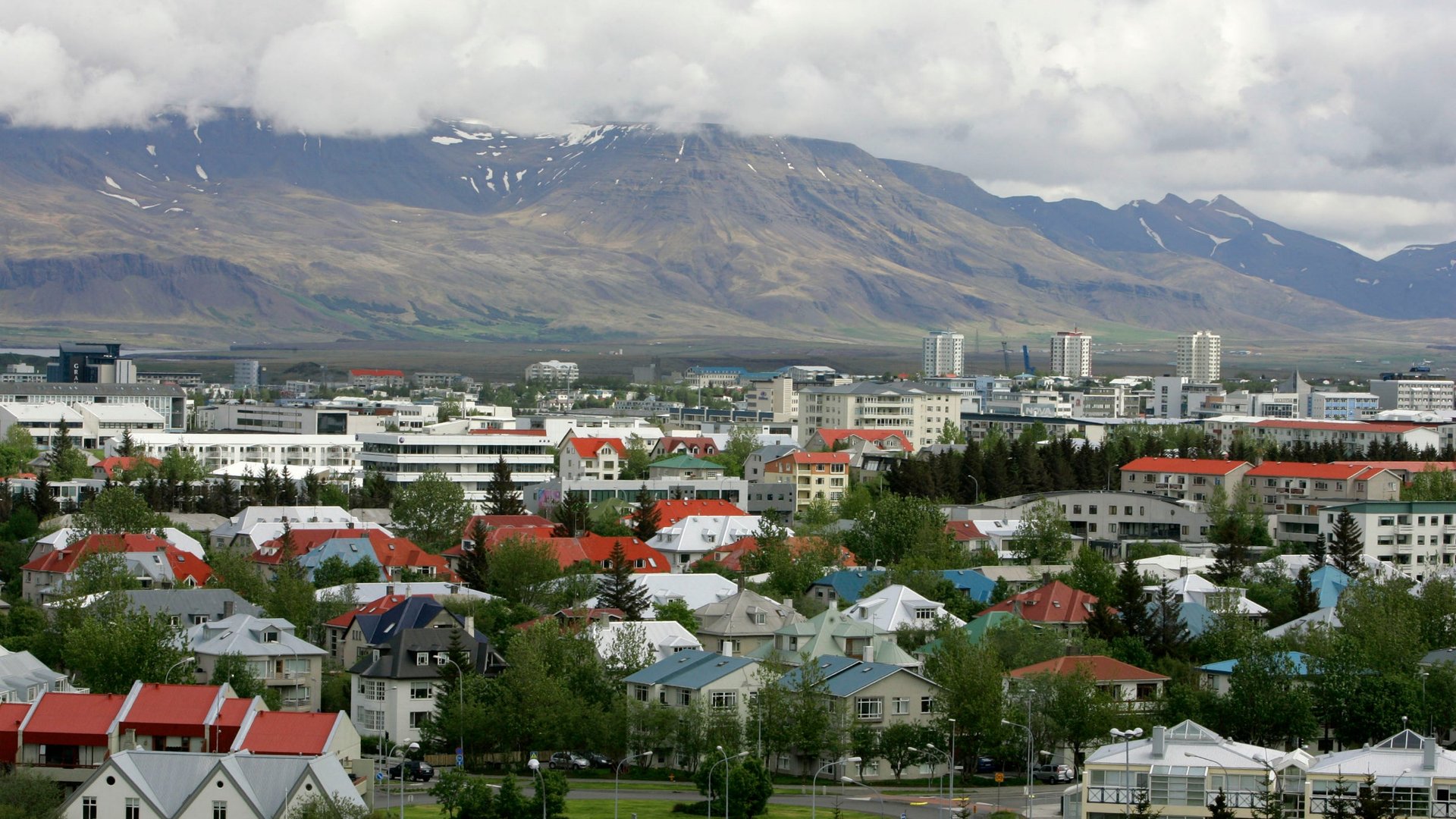How Iceland became a paradise for whistleblowers, renegade chess-prodigies, and pirates
In his interview from Hong Kong this weekend, NSA-leaker Edward Snowden floated the idea of heading to Iceland to seek asylum.


In his interview from Hong Kong this weekend, NSA-leaker Edward Snowden floated the idea of heading to Iceland to seek asylum.
“My predisposition is to seek asylum in a country with shared values. The nation that most encompasses this is Iceland. They stood up for people over internet freedom,” Snowden told The Guardian.
To followers of world-news oddities, the destination may have sounded familiar—it’s also the original base of Wikileaks and the adoptive home of chess-prodigy-turned-outlaw Bobby Fischer (until his death in 2008).
Indeed, wherever there’s a renegade whistleblower, a party named for Pirates, or aswan-shaped dress, the eccentric island nation is not far behind.
So how did Iceland get its reputation for sticking it to the man?
The economic calamity of 2008 had a lot to do with it. The government was accused of mismanaging the country’s finances, causing a sharp rise in anti-authoritarianism and calls for transparency, according to the AP.
In part because of the important role journalists played in uncovering the disaster, in 2010 Iceland passed a so-called “journalism haven” statute—considered one of the most media-friendly laws anywhere—which ratcheted up protection for anonymous sources and made it much harder to censor stories. The measure was lobbied for by Wikileaks, and it was so strong that several foreign news organizations considered relocating their investigative desks there.
Iceland’s Pirate Party, a branch of similar groups based in Sweden and elsewhere, recently ran on a platform of transparency, freedom of expression, and civil rights and won three seats in the country’s parliament in April elections. The new representatives are appropriately counter-culture, consisting of a WikiLeaks volunteer, a university student, and a computer programmer.
The Pirates are now firmly in Snowden’s camp, as the AP reports:
“We have called in our lawyers and are ready to assist him if he comes to Iceland,” said Smari McCarthy, a Pirate Party member and founder of the Icelandic Modern Media Initiative, a group campaigning to give Iceland even stronger freedom of speech protections.
Since then, Iceland seems to have taken a decidedly pro-Wikileaks stance. The country forced a regional credit-card company to process overdue card payments owed to Wikileaks, and it also recently deported some FBI agents who had come there to question a Wikileaks associate.
Iceland has never extradited a citizen back to the U.S., but the two countries do share an extradition treaty. Fischer successfully hid out in Iceland when he was wanted in the U.S. for violating sanctions by playing a chess game in Yugoslavia in the 1990s.
The latest reports say that Snowden has not yet applied for asylum in Iceland, and since he’d have to be there to file an asylum claim, he faces a hurdle in leaving Hong Kong in the first place. Meanwhile, Iceland is also a major U.S. trading partner and diplomatic ally, which may supercede whatever whistleblower sympathies they might have.
Plus, they’re really busy dealing with a pretty serious elf invasion.
Olga Khazan is The Atlantic’s global editor.